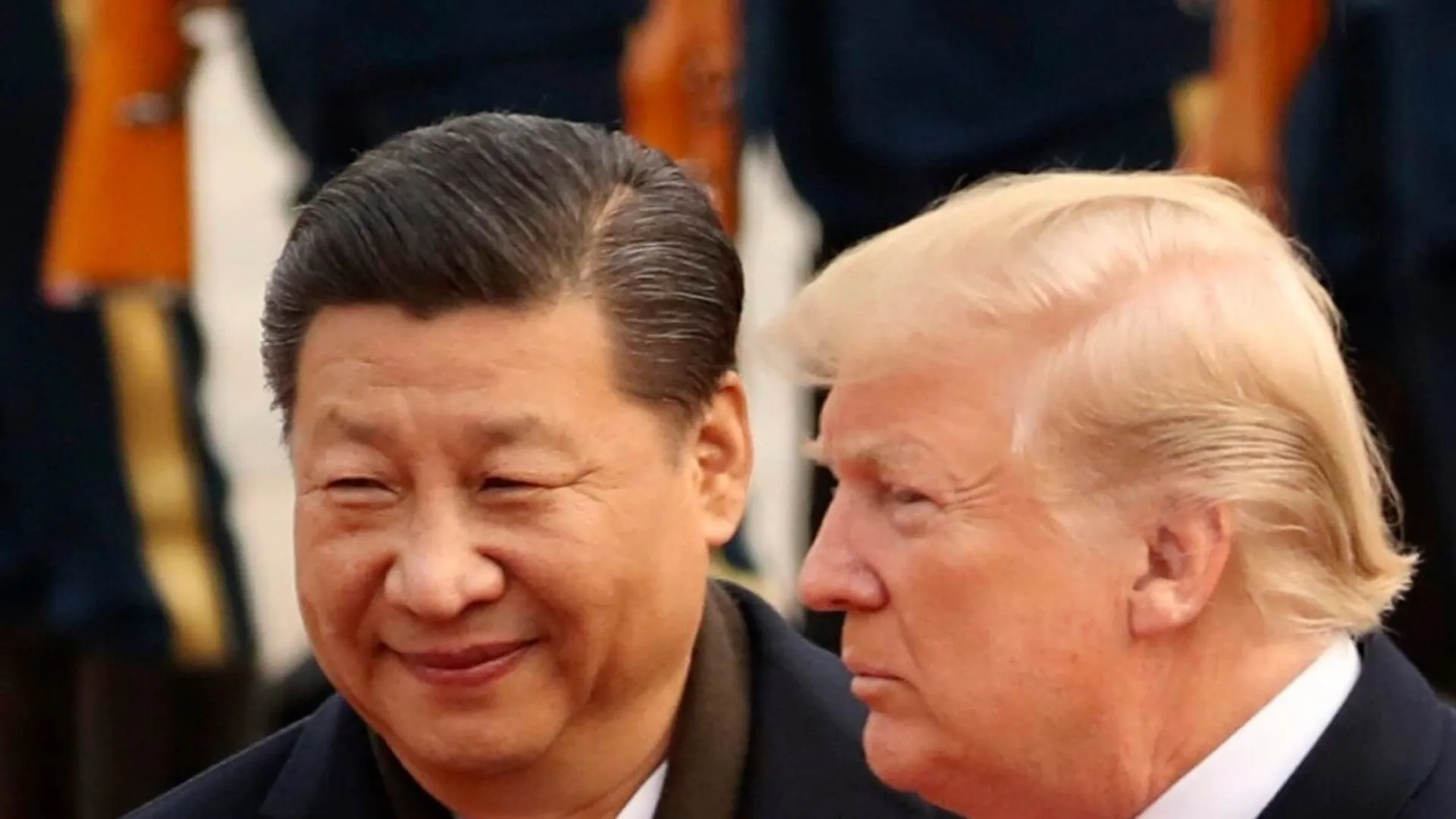As Donald Trump returns to the White House, his second term poses a significant challenge for China, with the potential for renewed tensions over tariffs, Taiwan, and technology. Here’s a breakdown of what’s at stake for US-China relations under Trump’s leadership.
Looming Tariff War: A New Economic Battle?
One of the key threats facing China, should Trump follow through on his campaign promises, is the imposition of sweeping tariffs on Chinese exports. Trump has suggested a blanket 60% tariff on all Chinese goods entering the U.S., which could have a devastating impact on China’s already fragile economy.
As UBS analysts warned, such tariffs could shave 2.5 percentage points off China’s projected economic growth, significantly deepening the country’s ongoing economic slump, which includes high youth unemployment, a struggling property market, and growing government debt.
“Tariffs like that would be a blow to China’s already unstable economy,” said an analyst. Trump’s previous term saw the U.S. imposing tariffs on over $360 billion worth of Chinese products, which resulted in a 2020 trade agreement aimed at improving intellectual property rights and securing a $200 billion increase in U.S. exports to China — a commitment that China largely failed to fulfill.
Despite President Biden retaining many of Trump’s tariffs, the looming threat of even higher duties could once again force China to the negotiating table.
Trade Talks and Global Crises: Trump’s “Bromance” with Xi
Trump has previously sought to balance trade disputes with strategic cooperation on global issues. Notably, during his first term, he engaged Chinese President Xi Jinping in discussions on resolving the North Korean crisis. Trump now says he could quickly broker peace in Ukraine, but with his trade grievances still in play, his approach to China will likely blend competition with diplomatic negotiations.
Wang Huiyao, founder of the Center for China and Globalization, notes, “China is the largest trading partner of both Russia and Ukraine. These close economic ties give China a unique opportunity to play a greater role in peace-making efforts.”
However, this pragmatic partnership may be complicated by Trump’s more aggressive stance on tariffs and trade.
Taiwan: A Flashpoint for U.S.-China Relations
One of the most contentious issues between Trump and China remains Taiwan, the self-governing island that Beijing views as a breakaway province. Trump’s rhetoric around Taiwan has been provocative. He has threatened to impose even harsher tariffs — as high as 150% to 200% — if China were to invade Taiwan.
Trump’s fraught history with Taiwan began in 2016 when, as President-elect, he took a congratulatory phone call from Taiwan’s then-president Tsai Ing-wen, breaking decades of U.S. diplomatic protocol. Despite the controversy, Trump has consistently supported Taiwan’s de facto independence while not formally recognizing it as a sovereign nation.
In recent statements, Trump also suggested that Xi Jinping, whom he has called a “respected” leader, would not risk escalating the Taiwan situation. “He knows I’m [expletive] crazy,” Trump claimed, asserting that his personal relationship with Xi would prevent an invasion.
However, Trump has also said Taiwan should pay for U.S. defense support, likening it to “insurance.” Critics see this as an added point of contention, as Taiwan already invests heavily in its own defense and buys significant quantities of U.S. military hardware.
Technology and the Chips Debate
One of the ongoing flashpoints between the U.S. and China is the issue of technology, particularly in the semiconductor industry. Trump initiated a crackdown on Chinese technology firms like Huawei during his first term, citing security concerns. This move has carried over into Biden’s administration, with new restrictions placed on China’s access to advanced semiconductors — critical for industries such as artificial intelligence.
Trump’s criticism of the CHIPS and Science Act, a $53 billion initiative to bolster domestic semiconductor manufacturing, suggests that he may seek to undermine these efforts. Taiwan, which produces 90% of the world’s most advanced chips, could find itself caught in the middle of this technology war. The island’s largest semiconductor producer, TSMC, is expanding its operations in Arizona in response to U.S. protectionist policies.
Trump has accused Taiwan of “stealing” the chip industry from the U.S. decades ago. “Rather than providing a silicon shield, Taiwan’s dominance in the chip industry could actually be a source of tension,” said Shihoko Goto, Director of the Indo-Pacific Program at the Wilson Center.
ALSO READ: US Election Results: Trump’s Return, What It Means For U.S. Business, Tariffs & Global Trade




